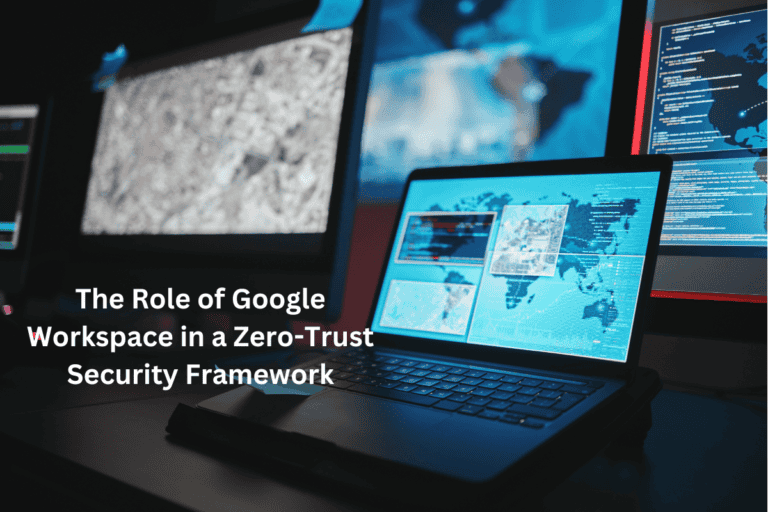How to Build a Career in Cyber Threat Intelligence?
Cyber threat intelligence is vital to cybersecurity, helping organizations identify, analyze, and mitigate potential risks from cyber threats. As cyberattacks grow increasingly sophisticated, businesses and governments alike are seeking professionals who can predict, prepare for, and respond to these evolving challenges. For individuals passionate about cybersecurity, this field offers the opportunity to play a critical role in protecting sensitive information and infrastructure.
Building a career in cyber threat intelligence requires a combination of technical skills, analytical abilities, and practical experience. Whether you’re starting your cybersecurity journey or looking to specialize in threat intelligence, understanding the necessary steps is key to success. This article explores the skills, training, and strategies needed to establish a strong foundation in cyber threat intelligence.
1. What Is Cyber Threat Intelligence?
Cyber threat intelligence is the process of collecting and analyzing data to understand potential cyber threats, their motives, and methods. It provides actionable insights that organizations can use to bolster their defenses and respond proactively to attacks. A critical part of this process is combining insights from multiple sources to create a comprehensive understanding of threats. This is known as intelligence fusion in cybersecurity.
Intelligence fusion helps organizations identify patterns, assess risks, and develop effective strategies. A comprehensive understanding of threats allows teams to integrate real-time threat data from internal systems and external feeds.
With these insights, they respond to threats faster and more effectively. Understanding how intelligence fusion enhances threat detection and response is essential for anyone looking to build a career in this field.
2. Acquiring the Necessary Technical Skills
A solid foundation in technical skills is crucial for a career in cyber threat intelligence. Key skills include understanding network security, malware analysis, and vulnerability assessment. Familiarity with tools like SIEM (Security Information and Event Management) systems, packet analyzers, and endpoint protection solutions is also essential.
Knowledge of coding can be a significant advantage. Learning programming languages like Python enables you to automate tasks, analyze data, and create custom tools for identifying and mitigating threats. Many cyber threat intelligence professionals also use scripting languages to streamline workflows and improve efficiency.
To gain these skills, consider pursuing certifications such as:
- CompTIA Security+
- Certified Ethical Hacker (CEH)
- Cyber Threat Intelligence Analyst (CTIA)
These qualifications build your knowledge and enhance your employability in the cybersecurity job market.
3. Gaining Knowledge in Cybersecurity Frameworks
Understanding cybersecurity frameworks is essential for analyzing and addressing threats effectively. Frameworks like MITRE ATT&CK and NIST provide structured approaches to identifying attacker behaviors and implementing defensive measures.
- MITRE ATT&CK: This framework helps professionals map cyber threats by categorizing tactics, techniques, and procedures used by attackers. It enables organizations to anticipate potential risks and prioritize defenses.
- NIST Cybersecurity Framework: This framework offers guidelines for managing cyber risks across different stages, including identification, protection, detection, response, and recovery.
Studying these frameworks through online resources, workshops, or courses can deepen your understanding of threat patterns and improve your ability to create effective strategies.
4. Developing Analytical and Communication Skills
While technical expertise is essential, analytical and communication skills are equally important in cyber threat intelligence. The ability to evaluate complex datasets, identify patterns, and make connections between seemingly unrelated events sets successful professionals apart.
In addition to analyzing threats, you must also communicate your findings clearly to non-technical stakeholders. Writing concise reports, creating visual presentations, and delivering briefings are common tasks in this role. Strong communication skills ensure that decision-makers understand the risks and can act on your recommendations.
To enhance these skills, consider:
- Practicing problem-solving exercises
- Collaborating on team projects
- Participating in cyber competitions
Developing a balance between analytical thinking and effective communication will prepare you for the challenges of this dynamic field.
5. Gaining Practical Experience in Cyber Threat Intelligence
Practical experience is essential for mastering the complexities of cyber threat intelligence. Hands-on experience allows you to apply theoretical knowledge to real-world scenarios, improving your skills and understanding of the field. There are several ways to gain practical experience:
- Internships: Many organizations offer cybersecurity and threat intelligence internships, providing exposure to live environments and mentorship from experienced professionals.
- Labs and Simulations: Platforms like Cyber Ranges or Capture the Flag (CTF) competitions simulate real-world cyberattacks, giving you a safe environment to practice threat detection and response.
- Freelance Projects or Volunteer Work: Collaborating with smaller organizations or nonprofits on cybersecurity projects can provide valuable experience and portfolio material.
The goal is to immerse yourself in situations that challenge your technical and analytical skills, preparing you for the demands of a professional role in the field.
6. Networking and Staying Current with Industry Trends
Cyber threat intelligence is a constantly evolving. You need to stay regularly updated on new threats and emerging technologies. Here’s how to do it:
- Join Professional Communities: Participate in groups like the Cyber Threat Alliance or attend forums such as DEF CON or Black Hat conferences.
- Follow Cybersecurity News: Stay informed by following trusted sources like Threatpost, Krebs on Security, or industry blogs.
- Engage on Social Media and Online Platforms: LinkedIn, Reddit, and specialized forums offer spaces to discuss trends, share knowledge, and connect with industry peers.
- Enroll in Continuing Education: Regularly update your knowledge through workshops, certifications, and courses that reflect the latest industry practices.
Networking keeps you informed and opens doors to career opportunities and mentorship.
7. Charting Your Career Path and Finding Opportunities
The field of cyber threat intelligence offers diverse roles and opportunities, from working in private-sector enterprises to government agencies. Some career paths to consider include:
- Threat Intelligence Analyst: Focuses on gathering and analyzing threat data to provide actionable insights.
- Incident Responder: Specializes in responding to and mitigating cyber incidents.
- Security Operations Center (SOC) Analyst: Monitors and protects systems in real-time.
- Threat Researcher: Conducts in-depth investigations into cyber threats and attacker methodologies.
Tailoring your career path requires identifying your strengths and interests and then aligning them with roles that suit your skills and long-term goals. Building a solid resume and highlighting your certifications, hands-on experience, and soft skills will position you as a strong candidate in the cybersecurity job market.
In conclusion, cyber threat intelligence is a dynamic and rewarding field that plays a critical role in safeguarding organizations from ever-evolving cyber threats. Staying curious, adaptable, and proactive in learning will help you stay ahead of emerging challenges. Whether you aim to work in the public or private sector, your contributions to cyber threat intelligence can make a meaningful impact in protecting vital systems.







